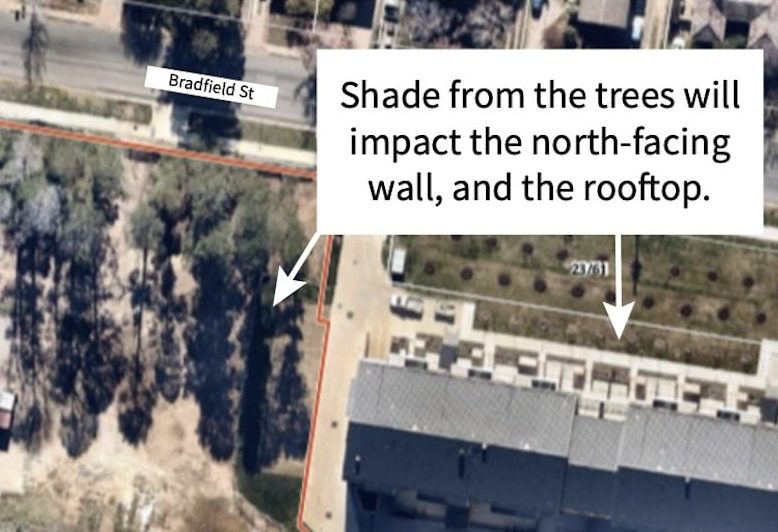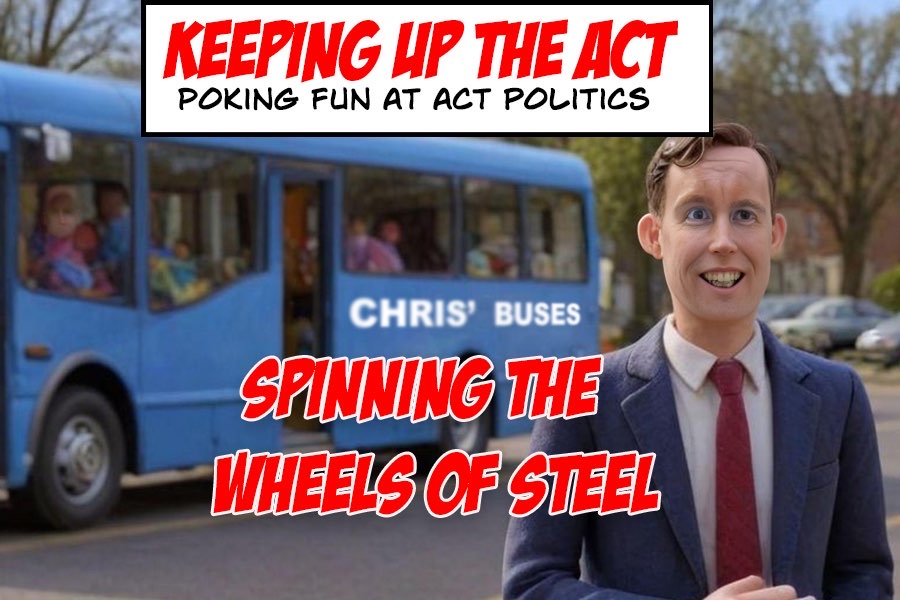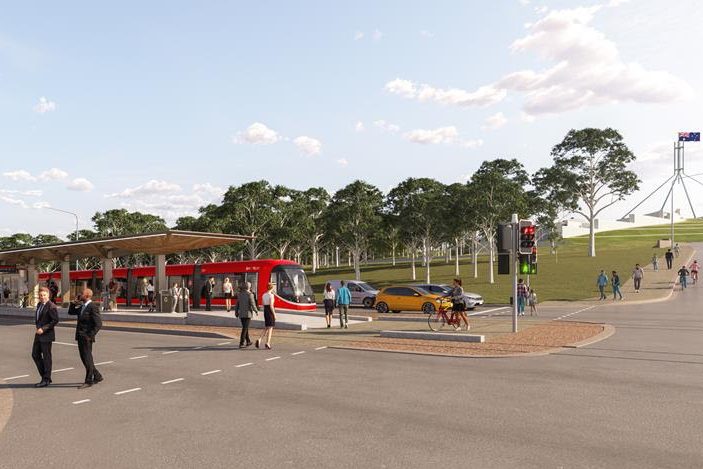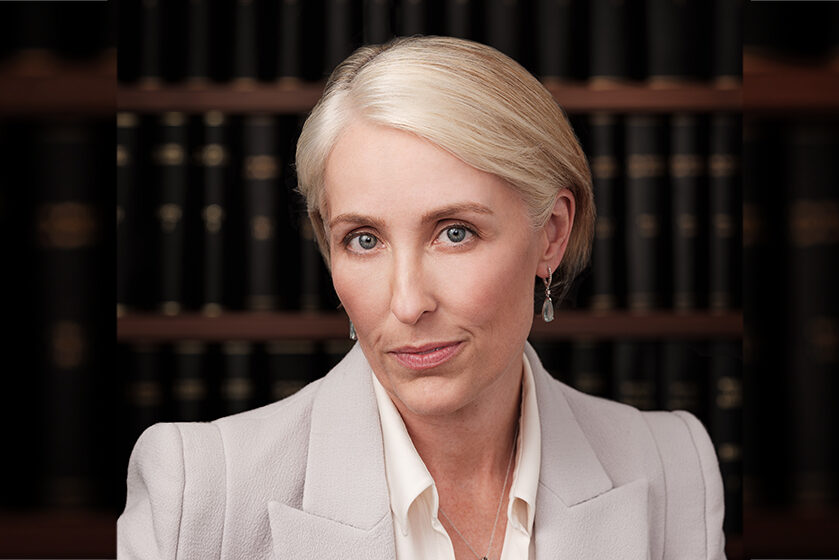
Why is commonsense such a struggle? Why are so many neighbourhoods banging their heads against the brick wall of bureaucracy? So many questions, but so few answers. It’s “Seven Days” with IAN MEIKLE.
HERE, in one small corner, is a glimpse of everything that’s amiss with our city right now.

In Downer there is a group of citizens of all political persuasions, they say, banging their heads against the brick wall of bureaucracy over trees. Not about having them pulled down, but getting the right ones planted.
Why is common sense such a struggle? I’ll come back to Downer because, in another small corner, the residents around a Narrabundah intersection have been campaigning for at least 18 months for Roads ACT to wake up to the dangers that daily await pedestrians young and old, and motorists where La Perouse Street and Carnegie Crescent intersect. Late last month there was another three-car prang.
In March last year the residents went to see City Services Minister Chris Steel about the “black spot” intersection.
“There was lots of nodding and writing notes, but no action. We followed up with letters. No action. We pulled together a video and sent it to them. No action,” exasperated group member Timothy DeWan told “Seven Days” in early June.
“We are all just neighbours in our community who have come together to address this awful situation. We want the crashes to stop. We don’t want anyone to die. We thought this was the role of government.”
Earlier this month, Roads ACT engineers finally, finally faced the neighbourhood to share their plans in what Tim calls a “good turn out at the wet and cloudy intersection… our residents engaging with and providing frank (and sometimes forthright) feedback to the proposed remediations.
“Great to be part of a community that pushes for change. Very proud of my neighbours.”
Given the grinding size of our rates contributions, why do neighbours constantly have to fight so hard for so long to impose common sense on the government?
Here’s someone in another small corner; Rob May says he’s campaigned for more than four years to get a zebra crossing at Nipperville Early Learning Centre in Watson.
“Even with broad support from the community and from the centre management, ACT Roads are unwilling to provide a safe crossing at the location, because, as they say, no-one has been hit yet at that location (apparently a death there would be really useful in justifying it),” he laments.
“We, including centre management, have witnessed numerous near misses. It is a miracle a kid and/or parent hasn’t been knocked down, injured or killed by the idiots who like to fly through Gwynne Street as fast as possible.” Rob battles on into his fifth year.
And so to the Downer neighbours. They’ve been trying to engage the Heritage Council and government ministers in an issue they believe ignores climate change and contravenes the government’s own Design Standards for Urban Infrastructure.
“In a nutshell, we are arguing for deciduous trees, planted in the windbreak pattern of the original (now heritage) evergreen pines around the former CS&IR Experiment Station and, subsequently, the Downer primary school,” says spokesman John Godwin.
“Why? Because in an urban environment, in close proximity to the north-facing wall of a three-storey building, the Heritage Council decided that new evergreen pine trees had to be planted.
“These pines will eventually deny solar access for residents and increase their heating costs. Tall pines will also eventually have the potential to reduce the efficiency of rooftop solar.”
He says, despite perseverance and follow-ups, the council hasn’t responded to “respectful correspondence” dating back to February.
“Residents have no right of appeal; it is an issue that covers several portfolios and ministers argue that once the Heritage Council has made a decision, they cannot intervene,” says John.
“Climate crisis doesn’t get a look in, government standards don’t get a look in and common sense comes a distant last.”
Opposition Leader Elizabeth Lee is the sponsoring member of an e-petition that asks the Assembly to seek the removal of the new pine trees and replace them with deciduous trees for the front of all north-facing buildings in the developments of “The Bradfield” stages 1 and 2 and the yet to be approved Goodwin Village on Bradfield Street, Downer. Join the cause via epetitions.act.gov.au
LIBERAL MLA Nicole Lawder was the only one of the 25-member ACT Legislative Assembly interested to turn up to a Saturday public gathering on Farrer Ridge recently.
But her presence was enough to convince former president of the Canberra Branch of the ALP Ian MacDougall to give Lawder his “full political support from here on in ACT Assembly elections”.
Up on the ridge, residents wanted to show local pollies first hand the dense undergrowth they say will fuel the next Canberra bushfire.
In an open letter to Legislative Assembly members, MacDougall reprises the human cost of the 2002-3 fires in which four people died, more than 435 injured and there were 5000 evacuations. Plus 488 houses destroyed.
“We now have the fuel build up, thanks in great part to the lack of kangaroos eating it down, for a full repeat of that 2002-3 disaster,” he warns.
“I put it to you that the cost of this brainless and myopic policy is likely to be a major bushfire event in the coming summer, resulting in far, far greater financial losses as well as of lives and property.
“A more sensible policy would be to end the culls totally, and to let nature do whatever culling she found both necessary and sufficient. I speak here as a neo-Darwinist and a former teacher of biology.”
Moreover, he says he’s sure the accident rate would reduce substantially if the Assembly legislated to waive all obligations for all insurance companies to pay for repairs to cars damaged in collisions with kangaroos.
“I am also sure [it] would lift the local standard of driving enormously and help clear our roads of irresponsible hoons.” A win-win, really!
Ian Meikle is the editor of “CityNews” and can be heard with Rod Henshaw on the “CityNews Sunday Roast” news and interview program, 2CC, 9am-noon. There are more of his columns on citynews.com.au
Who can be trusted?
In a world of spin and confusion, there’s never been a more important time to support independent journalism in Canberra.
If you trust our work online and want to enforce the power of independent voices, I invite you to make a small contribution.
Every dollar of support is invested back into our journalism to help keep citynews.com.au strong and free.
Thank you,
Ian Meikle, editor




Leave a Reply